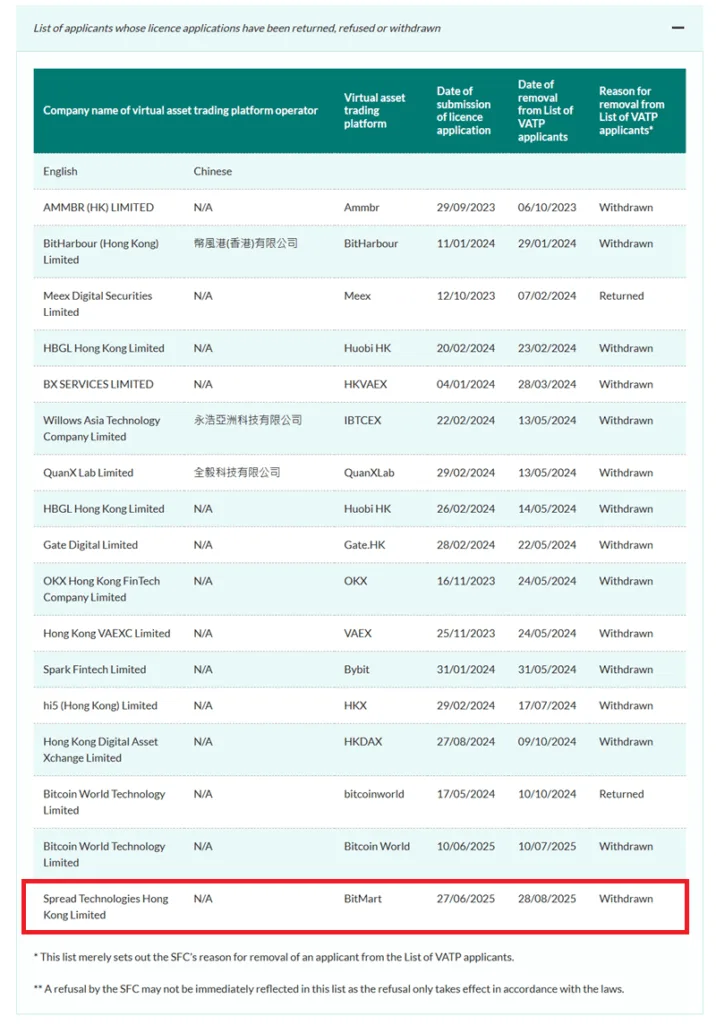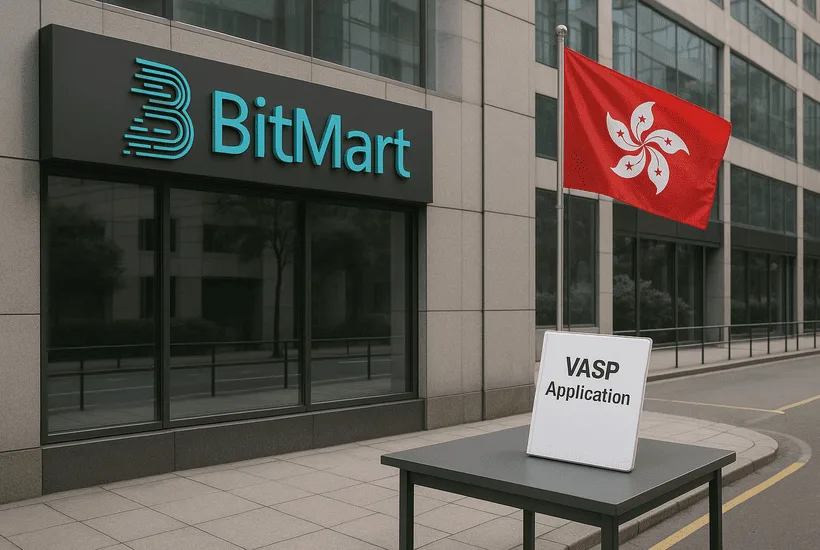- BitMart withdraws Hong Kong VASP application, joining Bybit, OKX, and Gate.
- Hong Kong’s strict SFC rules demand high capital, insurance, and custody standards.
- Despite exits, regulators have licensed 11 exchanges, reinforcing the city’s crypto hub ambitions.
BitMart, a cryptocurrency exchange, has withdrew its application to be licensed as a virtual asset service provider (VASP) in Hong Kong, joining an increasing number of significant platforms that are leaving the city’s strict regulatory framework.
The Securities and Futures Commission (SFC) reports that BitMart officially declared its intention to withdrew their application on August 28, 2025. As the authority strengthened its licensing requirements earlier this year, BitMart joined other well-known exchanges including Bybit, OKX, and Gate that withdrew.

A wave of withdrawals
The difficulties presented by Hong Kong’s regulatory requirements are highlighted by BitMart’s and its competitors’ withdrawal. Bybit and OKX both withdrawn their VASP applications in May 2024, while Gate did the same at about the same time. The SFC’s deadline for platforms to obtain licenses or risk being kicked out of the local market fell on the same day as the exodus.
Newsletter
Get weekly updates on the newest crypto stories, case studies and tips right in your mailbox.
The wave of withdrawals reflects a larger trend: despite Hong Kong’s efforts to establish itself as a leading hub for digital assets, many international players are finding it challenging to comply with its stringent compliance requirements.
High bar for compliance
Any centralized cryptocurrency exchange that operates locally or targets local investors must have an SFC license in Hong Kong. The regulations are among the most stringent in the world. Platforms are required to keep 98% of client assets in cold storage, hold at least HK$5 million ($641,490) in paid-up share capital, and maintain liquid assets equivalent to a year’s worth of operational expenses. Only whitelisted addresses are allowed to receive transfers, and 50% of cold wallet holdings and 100% of hot wallet holdings need to be insured.
The SFC also authorized new custody services regulations earlier this month that forbid using smart contracts to manage cold wallets. Exchanges looking to enter Hong Kong are now under much more operational pressure as a result of these circumstances.
A balancing act for Hong Kong
Hong Kong is continuing to pursue its goal of being a global center for cryptocurrency despite the spate of withdrawals. PantherTrade, YAX, Bullish, and BGE were granted operational licenses by the city in 2025 alone, increasing the total number of regulated exchanges to eleven.
Stablecoins are another area where the framework is growing. Recently, the Hong Kong Monetary Authority finalized regulations for stablecoin issuers, including obligations for reserve management and capital requirements. Even though new regulations caused some local businesses to suffer significant losses on August 1, analysts characterized the market’s response as a healthy correction and an indication that institutional players are taking Hong Kong’s stringent regulatory approach seriously.
Even if any crypto-native businesses decide to leave, Hong Kong intends to draw in banks, funds, and international financial institutions that require regulatory clarity by upholding strict standards.













